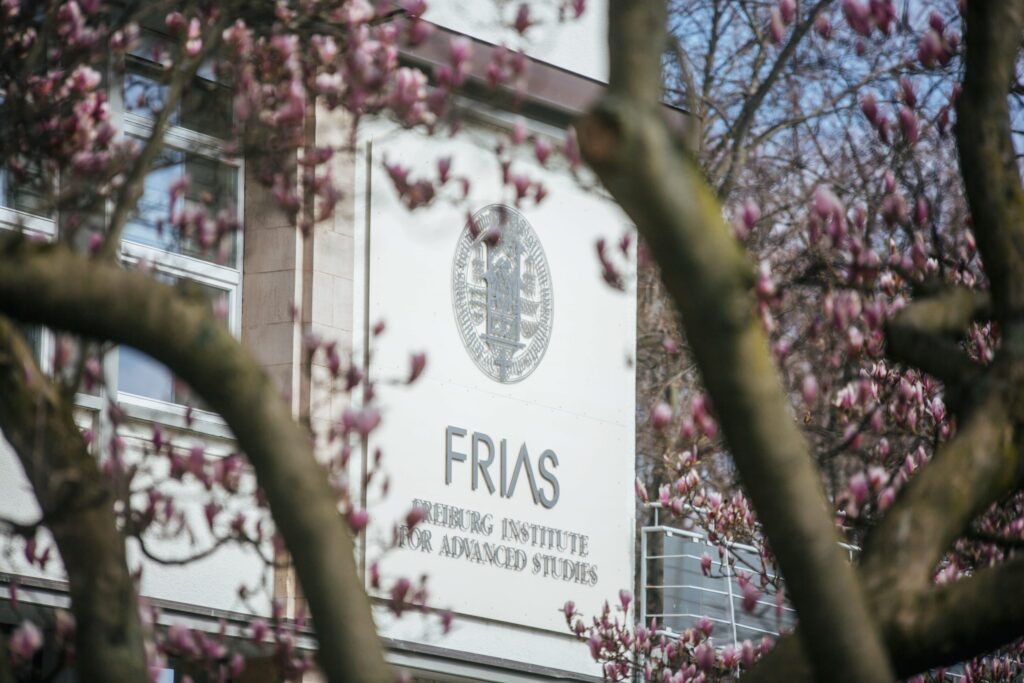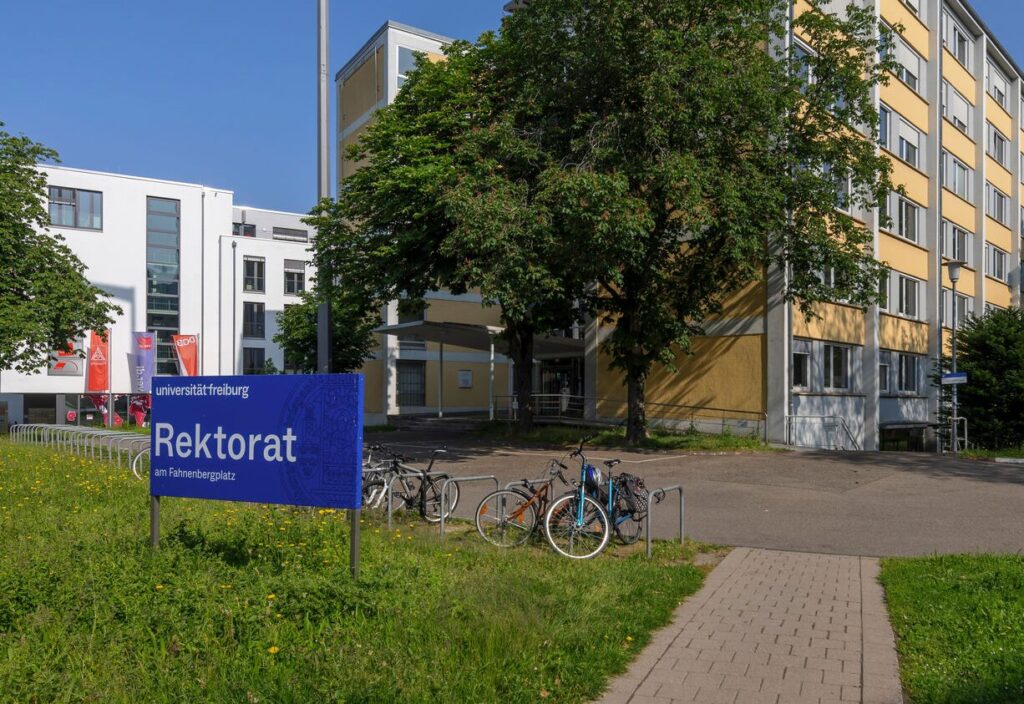University
The University of Freiburg
The University of Freiburg was founded in 1457 and is one of the oldest and most renowned universities in Germany. With eleven faculties, around 240 degree programmes, and 440 full professorships as well as 32 junior professorships, it covers a broad interdisciplinary spectrum with high-quality research and teaching. The University of Freiburg regularly takes top positions in prestigious rankings. In the Shanghai Ranking, for example, it comes in at fifth place in nationwide comparison and is listed among the 101–150 best universities worldwide.
The University currently has around 24,500 students, 4,985 doctoral candidates, and a total of 8,200 employees, 5,800 of them in academic positions. Twenty-three Nobel laureates are associated with the University of Freiburg. The University secured 219 million euros in third-party funding in 2023 and received 16 ERC Grants between 2019 and 2023. Two Clusters of Excellence are currently being funded at the University of Freiburg. The University of Freiburg has submitted two applications for new Clusters of Excellence and two renewal applications for the two existing Clusters of Excellence for the current Excellence Strategy of the Federal and State Governments, funding line Clusters of Excellence – embedded in the overall strategy process “University of Freiburg 2030”.
around 24500
students
around 3660
doctoral candidates
around 6700
employees
23
Nobel laureates

Portrait
The University of Freiburg regularly appears at or near the top of respected rankings: in the ShanghaiRankings, for example, it takes fifth place within Germany, and is among the 101-150 best universities worldwide.
History
The University of Freiburg has been making an impact on society with its teaching and research since 1457. It presents its exciting and eventful history in the place where it all began: In 2004, it opened the Uniseum in the Old University, right in the centre of Freiburg. It is attached to the university archives and offers a walk through six centuries of university and academic history.


Governance
The Executive Board, Senate and University Council make up the governance of the University of Freiburg. The collegial executive board consists of the Rector, four Vice Rectors and the Head of Administration. The Senate represents every area of the University. The University Council guides the University of Freiburg and takes responsibility for strategic matters.
Faculties
With its eleven faculties, roughly 240 degree programmes, 440 full professors and 32 junior professors, the University of Freiburg offers a broad interdisciplinary spectrum of high-quality research and teaching. It regularly appears at or near the top of respected rankings.


Scientific and Central Facilities
An overview of the various academic and central institutions at the University of Freiburg and of cooperations with associated institutions.
Central administration
The central administration of the University of Freiburg regards itself as a service provider and partner for every member of the University – whether student, teacher, academic or employee. Its work makes a major contribution to creating the right conditions for successful studies, outstanding research and fruitful teaching.


Staff representation and consulting services
An overview of staff representation and consulting services at the University of Freiburg.
Equity, Diversity and Inclusion
The University of Freiburg is actively committed to an equitable, inclusive and antidiscriminatory university culture. This involves consideration for gender equality, inclusion, antiracism, educational justice, religious, sexual and gender diversity, protection against age discrimination and the intersectionality of these aspects.


Internationalization
The University of Freiburg aims to be a cosmopolitan and globally networked home of knowledge. It promotes unbridled thinking through international cooperations and a worldwide exchange of ideas. This includes helping members of the University to gain international experiences, and support for international guests to feel at home at the University of Freiburg.
Career & Human Resources Development
The University of Freiburg considers the career and personnel development of its academics and administrative, service and technical staff to be a central strategic task, as career and personnel development is based on the knowledge that the University is supported and shaped by all employees, regardless of the areas in which they work.
